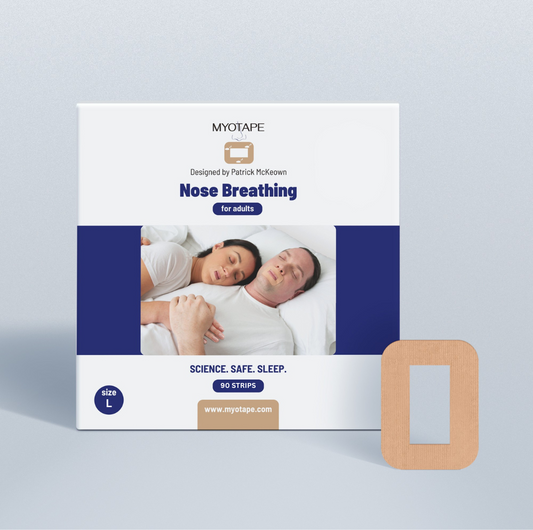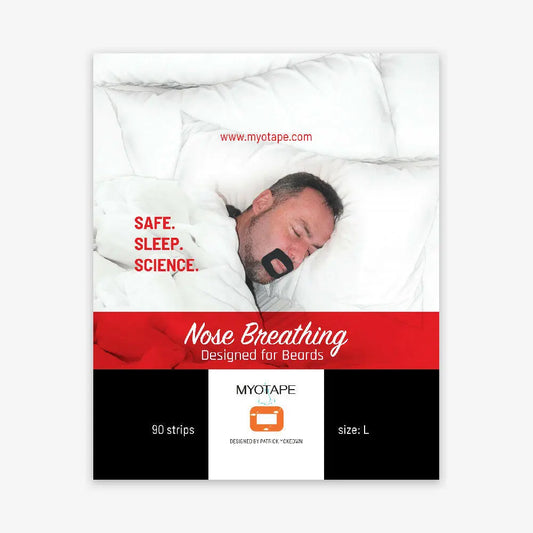Falling asleep isn't always as easy as turning out the lights. If you've ever found yourself lying in bed, staring at the ceiling and wondering why sleep just won't come, you're not alone.
Many people struggle to fall asleep quickly, often due to stress, a busy mind, or the demands of modern life. Even if you feel tired all day, but the moment your head hits the pillow, your thoughts start racing.
This frustrating experience is more common than you might think. While some people fall asleep within 10 minutes of hitting the bed, others spend 30 minutes or more tossing and rolling before finally finding sleep, if at all. If you are concerned about your sleep health, your sleep latency is something you should pay attention to, as it indicates where you stand and what you need to do to improve.
But what is sleep latency? And why should you track it? This is part of what we will cover in today's article. Read on to find out more.
What is Sleep Latency?
Sleep latency refers to the amount of time it takes to transition from a fully awake state to falling asleep once you're in bed and ready to rest.
There is a difference between the time you go to bed and when you fall asleep. The number could be mere seconds or stretch into minutes. That time difference is what is called sleep latency or sleep onset latency.
For most adults, falling asleep within 30 minutes or less is a sign of good sleep quality, according to the US National Sleep Foundation. For adults between 18 and 64 years old, falling asleep in 30 minutes or less is a sign of good sleep quality.
For older adults aged 65 and above, being able to fall asleep within 30 minutes is also considered a healthy sleep pattern.
However, if you fall asleep much faster (short sleep latency), such as in just 1 minute, it could mean that you're not getting enough sleep overall or that you're experiencing excessive daytime sleepiness.
If it regularly takes you longer than 30 minutes to fall asleep (long sleep latency), you may be missing out on valuable sleep, which can affect how rested you feel the next day.
Why is Sleep Latency Important
Sleep latency is often an indicator of how much sleep you are getting. As we explained above, sleep latency is the difference between the time you go to bed and when you fall asleep.
This means that if you have an idea of your sleep latency, you can do a proper calculation on how much sleep you get at night.
Another reason why knowing your sleep latency is important is that it lets you know if you're dealing with a sleep disorder. A longer sleep latency may be a result of various factors or could also be a sign of a condition such as insomnia or sleep apnea.

Factors that Affect Sleep Latency
How quickly you fall asleep, or your sleep latency, can be influenced by many different factors. Here are some of the most common ones:
Age: Younger children have a shorter sleep latency compared to teenagers and adults.
Stress and anxiety: Worries or an overactive mind can keep your body alert, making it difficult to relax enough to drift off.
Caffeine or heavy meals close to bedtime: Consuming coffee or a large meal late in the evening can keep your body alert and make it harder to fall asleep.
Screen time and blue light exposure: Artificial light from screens and devices can reduce melatonin and disrupt your natural sleep rhythm, making it harder to fall asleep and lead to high sleep debt. Too much evening screen time and digital stimulation can keep your brain alert and delay sleep.
Sleep environment (light, noise, temperature): A room that is too bright, noisy, or not the right temperature can make it uncomfortable to fall asleep.
Napping during the day: Taking long or late naps can lower your natural sleep drive, which may make it harder to fall asleep at night.
Breathing patterns and airway health: Breathing too fast or too hard can signal to your brain that your body is under stress or in a state of threat, making it harder to fall asleep. Both how you breathe during the day and at night can affect how quickly you fall asleep, how deeply you rest, and how refreshed you feel in the morning.
Tips for Falling Asleep Fast and Improving Sleep Latency
If you're searching for tips for falling asleep fast or want to know what helps you fall asleep fast, the following strategies can help you improve sleep latency and get a better night's rest:
1. Establish a consistent bedtime routine
Going to bed and waking up at the same time every day helps set your body's internal clock. This known as sleep consistency, and it is so crucial to your health.
When you keep a regular schedule, your brain starts to recognize when it's time to wind down, making it easier to fall asleep each night. Try to stick to your routine, even on weekends, to help your body develop a strong sleep rhythm.
Doing this will not just improve your sleep latency, but also boost your sleep performance score.
2. Limit screen time before bed
Artificial light from phones, tablets, and TVs can lower melatonin levels and confuse your natural sleep cycle. Excessive digital stimulation and exposure to blue light can keep your brain active and delay sleep.
Try turning off electronics at least an hour before bedtime, dim the lights, and consider using your phone's "nighttime" setting to reduce blue light exposure.
3. Optimize your sleep environment
A comfortable sleep setting can make a big difference in how quickly you fall asleep. Keep your bedroom dark, quiet, and at a favorable temperature.
Making your bedroom a relaxing space signals to your body that it's time to sleep.
4. Practice relaxation techniques
Relaxation methods, such as deep breathing, breathing exercises, meditation, or gentle stretching, can help calm your mind and body before bed. These activities help reduce stress and allow you to let go of the worries from the day.
Even a few minutes of slow, mindful breathing or quiet meditation can prepare your body for sleep and help you fall asleep faster.
5. Pay attention to your breathing
How you breathe, both during the day and at night, can affect how quickly you fall asleep and how well you rest. If your breathing is too fast, too much, or with your mouth, it can tell your brain that your body is under stress, making it difficult to relax to sleep.
Nasal breathing, in particular, helps activate your body's relaxation response and supports a smoother transition to sleep. If you're lying in bed wondering how to fall asleep fast when you are already in bed, try focusing on slow, steady nasal breaths to help your body unwind and encourage restful sleep.
Nasal Breathing: A Simple Way to Help You Fall Asleep Faster
Your breathing patterns play a significant role in how quickly you fall asleep and how well you rest. Breathing lightly and slowly through your nose signals to your brain that your body is safe, which helps you relax and activate your natural rest response. In contrast, mouth breathing or breathing too quickly can make your brain perceive you as being under stress, keeping you alert and making it harder to fall asleep.
Additionally, nasal breathing, both during the day and at night, promotes a calm and steady breath that supports deep, uninterrupted sleep. Practicing light nasal breathing exercises before bed can help quiet your mind and prepare your body for a restful sleep.
A small study found that practicing slow-paced breathing for 20 minutes before bed helped people with insomnia fall asleep faster, wake up less often during the night, and enjoy longer, more restful sleep. Participants who did these breathing exercises had better overall sleep quality and sleep efficiency compared to those who did not.
This research demonstrates that slow, steady breathing through the nose before bedtime can be a simple yet effective way to enhance sleep quality.
Admittedly, it is not always easy to switch to nasal breathing, especially during sleep. That is why a sleep aid product like MyoTape was designed to help you fall asleep on time.
MyoTape Improves Your Sleep Latency
As you've learned, something as simple as your breathing, especially nasal breathing, can have a powerful impact on how quickly you fall asleep and how deeply you sleep.
MyoTape is designed to gently support nasal breathing throughout the night, helping you calm your mind and body so you can fall asleep faster and stay asleep longer. It's a practical, easy-to-use solution that addresses one of the most overlooked factors in sleep quality.
Created by renowned breathing expert Patrick McKeown, MyoTape is specially designed to gently support your lips and encourage nasal breathing throughout the night. Unlike traditional mouth tape, MyoTape leaves the center of your lips free, allowing you to breathe easily if needed while still training your body to keep your mouth closed. This helps you achieve calm, steady breathing that has been proven to reduce sleep latency and improve overall sleep quality.
MyoTape offers solutions for everyone, including adults, children, individuals with sensitive skin, and those with facial hair. Explore our full range online and find the perfect fit to help you fall asleep faster, stay asleep longer, and wake up feeling truly refreshed.








